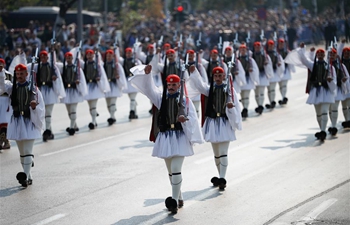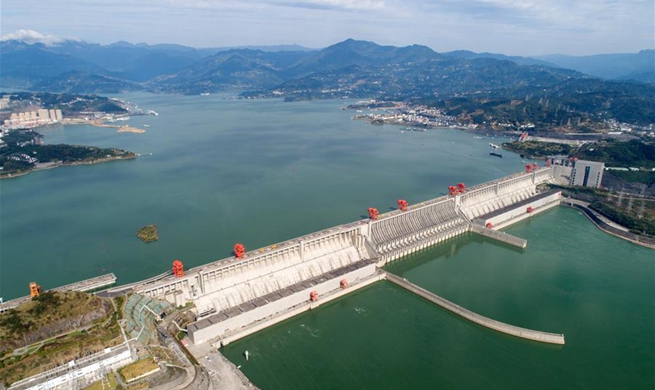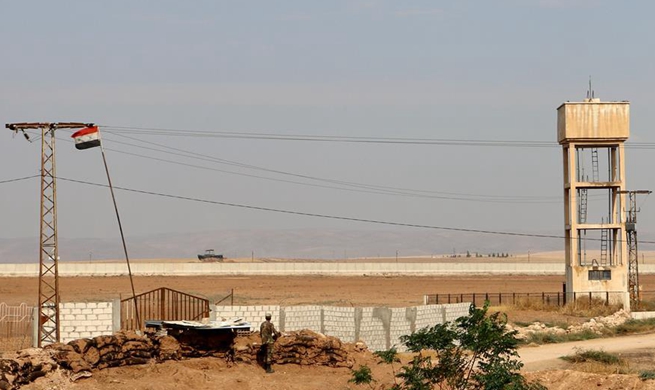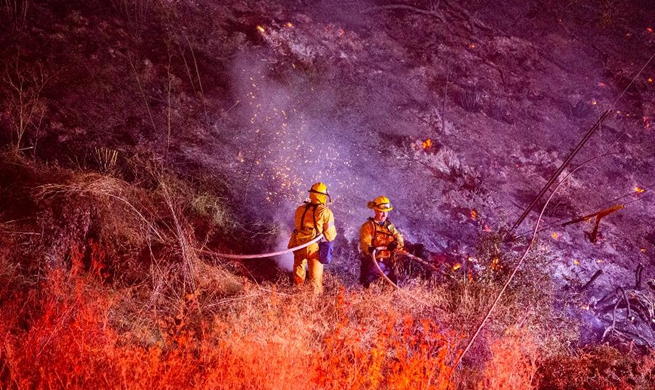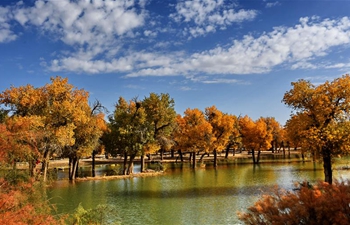DENVER, the United States, Oct. 28 (Xinhua) -- The western U.S. state of Utah was the first to get blasted by a powerful arctic air mass surging south from Canada, where a -37.1 degree centigrade record was set Monday.
"Peter Sinks, Utah has likely broken the national cold record for October this morning," weatherman Timothy Wright posted on Twitter at 9 am (1500 GMT) Monday, noting in a later Tweet that he was referring to America's lower 48 states, not Alaska or Hawaii.
"Low temperatures at Peter Sinks are the result of its high elevation (8164 feet, or 2488.39 meters) and unique topography," said Chicago meteorologist Tom Skilling.
"It is a basin a half mile (804.67 meters) in diameter with no outlet, like a large bowl. Cold air collects in the basin on clear, calm nights," Skilling said. "Very low temperatures can occur there, especially during outbreaks of arctic air in the winter."
"It's essentially a high elevation valley," Mike Seamen, lead forecaster at the National Weather Service (NSW) based in Salt Lake City, told the media.
Peter Sinks, a natural sinkhole in northern Utah, is one of the coldest places in the contiguous United States in history.
"It's basically a big hole that the cold drains into. On cold, dry cloudless nights, any remaining heat radiates out," Seaman said.
The Utah freeze is the lowest ever October reading across the lower 48 states, he noted.
The brunt of a cold-weather system hit Peter Sinks will also sweep across more than a dozen U.S. states through the end of this week, where record cold temperatures are expected.
The cold air is being funneled southward from Canada into the western and central United States by a southward plunge of the jet stream, the Weather Channel reported.
"That dip in the jetstream will slowly migrate eastward late in the week taking the colder air with it."
In neighboring mountainous Colorado, -17 degree centigrade temperatures are expected Tuesday and Wednesday, and the front is expected to move and expand eastward, hitting the Great Plains on Wednesday the Mississippi and Ohio River Valleys on Thursday, and the East Coast late Friday and into Saturday, the NSW said.
Record low temperatures are expected throughout the vast region.
Denver, capital of Colorado, has been on the frontline of the arctic attack.
Up to 8 inches (20.32 cm) of snow fell throughout the Denver metro area on Sunday and Monday, closing businesses and delaying schools.

